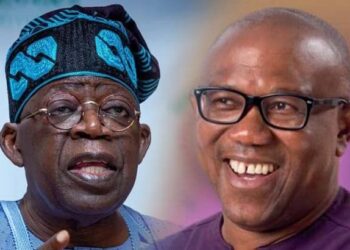
There are indications that the Central Bank of Nigeria (CBN) may likely keep its key interest rate unchanged as it announces the decision of the two day monetary policy committee (MPC) meeting today.
“The GDP numbers, in addition to the slight moderation in inflation numbers for April (18.12%), will be key considerations in tomorrow’s (today) MPC meeting. The committee is likely to maintain status quo and continue to monitor trends closely.“
The Bulletin further stated that the “GDP data released by the NBS last night revealed sluggish but positive growth (0.51%) for the first quarter of 2021. Of the 46 activities tracked by the NBS, 23 expanded (mostly job inelastic). While the Agric sector was weighed down by insecurity, the Telecom sector was a victim of the NIN policy and the embargo on new SIMS. Both sectors account for 31.24% of GDP. The numbers also mean that Nigeria avoided the much dreaded double-dip recession like in the Eurozone.“
However, GDP still contracted 1.92% for the full year, which is the most since at least 1991 according to International Monetary Fund data. Emefiele has said the MPC can only shift to fighting inflation once the economy’s recovery from the recession gains some traction.
However, according to Bloomberg,
“We still expect a modest rebound this year, with GDP on track to recover by more than 2%. Inflation is also expected to remain above target. However, we don’t expect the Central Bank of Nigeria to hike rates until later in the year, when it is confident in the strength of the recovery.
“The recovery remains somewhat fragile at this point,” said Abdulazeez Kuranga, an economist at Cordros Capital Ltd., a financial-services group in Lagos. “The central bank will likely allow policy measures to continue to permeate through the economy. It will most likely stay put.”
The MPC started a two-day meeting on Monday and Emefiele will announce the outcome of the deliberations on Tuesday. Of the six economists surveyed by Bloomberg, four said it will be an unchanged stance, one expected a 50 basis-point increase and one projected 100 basis points of tightening.
Oil Recovery
Crude output rose to 1.72 million barrels per day in the first quarter from 1.56 million in the last quarter of 2020, according to Sunday’s release. But production is still below what it was before the coronavirus-linked lockdowns decimated demand and prices fell. Oil GDP contracted by 2.2%, compared with a drop of 19.8% in the previous three months.
While oil contributes less than 10% of the country’s GDP, it’s a key driver of growth and provides most of the hard currency needed to power other industries and finance the government. Lagos-based FBNQuest Capital calculates the indirect oil economy makes up at least 40% of GDP.
The non-oil economy expanded by 0.8% from a year earlier, driven by manufacturing that grew 3.4%, the sector’s first increase in a year. Telecommunications expanded by 7.7%.
Easing pandemic restrictions worldwide and higher oil prices should speed up the recovery in the second quarter, according to Goldman Sachs Group Inc. economists Andrew Matheny and Maria Ludovica Ambrosino.











